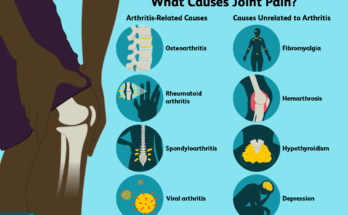
Outline of the Article
- Introduction
- Importance of physical activity for health
- Introduction to walking as an accessible form of exercise
- Brief overview of the article’s content
- Physical Health Benefits
- Improved cardiovascular health
- Weight management and increased metabolism
- Strengthened bones and muscles
- Lowered risk of chronic diseases
- Enhanced immune system
- Mental Health Benefits
- Reduced stress and anxiety
- Improved mood and self-esteem
- Boosted cognitive function and memory
- Alleviated symptoms of depression
- Increased creativity and productivity
- Increased Energy Levels
- How walking can provide an energy boost
- Enhanced circulation and oxygen supply
- Release of endorphins and reduced fatigue
- Improved Sleep Quality
- Impact of walking on sleep patterns
- Regulation of circadian rhythm
- Reduced insomnia symptoms
- Enhanced Digestion and Gut Health
- Stimulated digestive system
- Prevention of constipation and bloating
- Improved nutrient absorption
- Maintenance of a healthy gut microbiome
- Weight Loss and Maintenance
- Calorie burning and weight management through walking
- Combination of cardiovascular and strength benefits
- Tips for effective weight loss walking routines
- Joint Health and Flexibility
- Low-impact nature of walking on joints
- Strengthening of supporting muscles
- Reduced risk of arthritis and joint pain
- Social Connections and Emotional Well-being
- Walking as a social activity
- Opportunities for connection and bonding
- Positive impact on mental and emotional well-being
- Increased Longevity
- Association between regular walking and longer life expectancy
- Impact on overall health and well-being
- Walking for Brain Health
- Promotion of brain cell growth and neuroplasticity
- Reduced risk of cognitive decline and dementia
- Importance of walking for all age groups
- Improving Posture and Balance
- Strengthening of core muscles
- Enhanced stability and coordination
- Prevention of falls and injuries
- Healthy Skin and Anti-Aging Benefits
- Improved blood circulation to the skin
- Increased delivery of nutrients and oxygen
- Detoxification and reduced signs of aging
- Environmental Benefits
- Eco-friendly alternative to motorized transport
- Reduced carbon footprint and air pollution
- Preservation of natural resources
- Tips for Incorporating Walking into Daily Life
- Setting goals and tracking progress
- Finding motivation and creating a routine
- Incorporating walking into daily activities
- Conclusion
- Recap of the health benefits of walking
- Encouragement to make walking a regular habit
- FAQs
- Frequently asked questions about walking and its benefits
Now let’s proceed to write the article based on this outline.
Walking is not just an enjoyable activity, but it also offers a myriad of health benefits. Whether you prefer a leisurely stroll in the park or a brisk power walk, incorporating walking into your daily routine can have a positive impact on your physical and mental well-being. In this article, we will explore 20 amazing health benefits of walking that will inspire you to put on your walking shoes and take that first step towards a healthier lifestyle.
1. Improved Cardiovascular Health
Walking regularly is a fantastic way to strengthen your heart and improve cardiovascular health. It increases your heart rate, which in turn boosts blood circulation throughout your body. This helps deliver oxygen and essential nutrients to your muscles, organs, and tissues, promoting overall cardiovascular fitness and reducing the risk of heart diseases such as heart attacks, strokes, and high blood pressure.
2. Weight Management and Increased Metabolism
If you’re looking to shed some extra pounds or maintain a healthy weight, walking can be a valuable tool. It is a low-impact exercise that burns calories, helping you achieve a calorie deficit necessary for weight loss. Additionally, regular walking boosts your metabolism, making your body more efficient at burning calories even at rest.
3. Strengthened Bones and Muscles
Walking is a weight-bearing exercise that puts stress on your bones, stimulating the production of new bone cells and increasing bone density. This helps in preventing conditions like osteoporosis and strengthens your skeletal system. Furthermore, walking engages various muscles in your body, including your legs, hips, and core, improving muscle tone and strength.
4. Lowered Risk of Chronic Diseases
By incorporating walking into your daily routine, you can significantly reduce the risk of chronic diseases such as type 2 diabetes, certain types of cancer, and metabolic syndrome. Walking improves insulin sensitivity, regulates blood sugar levels, and reduces inflammation in the body, all of which play a crucial role in disease prevention.
5. Enhanced Immune System
Regular physical activity, including walking, boosts the immune system and strengthens your body’s defense against illnesses. Walking increases the circulation of immune cells, antibodies, and oxygen throughout your body, promoting the efficiency of your immune system in fighting off infections and diseases.
6. Reduced Stress and Anxiety
Walking in nature or simply taking a stroll in your neighborhood can do wonders for your mental well-being. Walking helps reduce stress and anxiety by releasing endorphins, which are natural mood-boosting chemicals in the brain. It provides an opportunity to clear your mind, enjoy the surroundings, and alleviate stress-related symptoms.
7. Improved Mood and Self-Esteem
Engaging in regular walking has been linked to improved mood and increased self-esteem. Physical activity stimulates the production of serotonin and dopamine, neurotransmitters responsible for feelings of happiness and well-being. Walking outdoors exposes you to natural sunlight, which further enhances mood and promotes the production of vitamin D.
8. Boosted Cognitive Function and Memory
Walking has a positive impact on brain health and cognitive function. Studies have shown that regular walking improves memory, attention span, and cognitive abilities. It increases blood flow to the brain, promoting the growth of new brain cells and enhancing neuroplasticity, the brain’s ability to reorganize and adapt.
9. Alleviated Symptoms of Depression
Walking can be a valuable adjunct to therapy and medication in managing depression. It helps release endorphins, which act as natural antidepressants. Additionally, walking in nature has a soothing effect on the mind and can reduce symptoms of depression, providing a sense of calm and tranquility.
10. Increased Creativity and Productivity
When you’re feeling stuck or in need of inspiration, a brisk walk can do wonders. Walking stimulates creative thinking and boosts productivity by increasing blood flow to the brain and activating neural pathways. It allows your mind to wander and generate new ideas, making it a powerful tool for writers, artists, and anyone seeking innovative solutions.
11. How Walking Provides an Energy Boost
Rather than reaching for another cup of coffee, try going for a brisk walk to combat fatigue and boost your energy levels. Walking increases circulation, delivering oxygen and nutrients to your muscles and organs. It also triggers the release of endorphins, which provide a natural energy lift and reduce feelings of fatigue.
12. Improved Sleep Quality
If you struggle with sleep issues, incorporating regular walking into your routine can help improve the quality of your sleep. Walking helps regulate your circadian rhythm which is your body’s internal clock that regulates sleep-wake cycles. By exposing yourself to natural light during your walks, especially in the morning, you can help reset your circadian rhythm and promote better sleep at night. Additionally, the physical exertion from walking can tire your body in a healthy way, making it easier to fall asleep and experience deeper, more restful sleep.
13. Enhanced Digestion and Gut Health
Walking stimulates your digestive system, aiding in better digestion and promoting gut health. The gentle movements and increased blood flow during walking help stimulate bowel movements, preventing constipation and reducing bloating. Regular walking can also improve nutrient absorption, ensuring that your body efficiently absorbs and utilizes the essential nutrients from the food you consume. Furthermore, walking supports a healthy gut microbiome, the collection of beneficial bacteria in your digestive system, which plays a crucial role in overall digestive health.
14. Weight Loss and Maintenance
Walking is an effective exercise for weight loss and weight management. It burns calories, helping create a calorie deficit necessary for shedding extra pounds. Combining cardiovascular benefits with muscle toning, walking can assist in losing body fat while preserving lean muscle mass. To maximize weight loss benefits, consider incorporating interval training or incline walking into your routine, challenging your body and increasing calorie burn.
15. Joint Health and Flexibility
Unlike high-impact exercises, walking is gentle on your joints while still providing numerous benefits. Regular walking strengthens the muscles that support your joints, such as your knees and hips, improving stability and reducing the risk of injuries. It also lubricates your joints, promoting flexibility and preventing stiffness. Walking is an excellent exercise option for individuals with joint conditions like arthritis, as it helps alleviate pain and inflammation.
16. Social Connections and Emotional Well-being
Walking can be a social activity that brings people together, whether it’s joining a walking group or simply walking with friends and family. Engaging in social interactions while walking enhances emotional well-being by fostering connections, reducing feelings of loneliness, and providing a support system. Sharing experiences, conversations, and laughter during walks can uplift mood and contribute to a sense of belonging and happiness.
17. Increased Longevity
Regular walking has been associated with increased longevity and a reduced risk of premature death. It is a sustainable form of physical activity that supports overall health and well-being. Walking improves cardiovascular health, reduces the risk of chronic diseases, and enhances mental well-being, all of which contribute to a longer, healthier life.
18. Walking for Brain Health
Walking is not only beneficial for the body but also for the brain. Regular physical activity, including walking, promotes the growth of new brain cells, improves memory, and reduces the risk of cognitive decline and dementia. It enhances blood flow to the brain, delivering oxygen and nutrients necessary for optimal brain function. Walking is a brain-boosting activity suitable for people of all ages, from children to older adults.
19. Improving Posture and Balance
Good posture and balance are essential for overall health and preventing injuries. Walking helps strengthen the core muscles that support proper posture, improving alignment and reducing strain on the spine. It also enhances balance and coordination, reducing the risk of falls, especially in older adults. By incorporating walking into your routine, you can develop better posture, stability, and overall body alignment.
20. Healthy Skin and Anti-Aging Benefits
The benefits of walking extend beyond internal health to external appearance. Walking improves blood circulation to the skin, providing it with essential nutrients and oxygen, which promotes a healthy, glowing complexion. The increased blood flow also aids in the removal of toxins from the skin, contributing to a clearer complexion. Additionally, walking helps reduce stress, which can have a positive impact on skin health and delay the visible signs of aging such as wrinkles and dullness. Regular walking can help you maintain a youthful appearance and support overall skin health.
Incorporating walking into your daily routine offers a multitude of health benefits for both your body and mind. From improved cardiovascular health and weight management to enhanced mood and cognitive function, walking is a simple yet powerful way to prioritize your well-being. So, lace up your walking shoes, step outside, and start reaping the incredible rewards of this accessible and enjoyable form of exercise.
Conclusion
Walking is a natural and accessible form of exercise that provides an array of amazing health benefits. From improving cardiovascular health, managing weight, and strengthening bones and muscles to enhancing mental well-being, boosting energy levels, and promoting better sleep, walking is a versatile activity that positively impacts various aspects of your health.
By incorporating walking into your daily routine and making it a habit, you can experience the long-term benefits of this low-impact exercise. So, take the first step towards a healthier lifestyle and start enjoying the countless advantages of walking today.
FAQs (Frequently Asked Questions)
1. Can walking help with weight loss?
Absolutely! Walking is an effective exercise for weight loss as it burns calories, boosts metabolism, and contributes to creating a calorie deficit necessary for shedding pounds.
2. How long should I walk each day to reap the health benefits?
Walking for at least 30 minutes a day is a good starting point to enjoy the health benefits of walking. You can gradually increase the duration or intensity of your walks as your fitness level improves.
3. Is it necessary to walk outdoors, or can I use a treadmill?
Both outdoor walking and treadmill walking offer benefits. Outdoor walking exposes you to fresh air and nature, while treadmill walking provides convenience and control over factors like speed and incline.
4. Can walking help with joint pain?
Yes, walking is a low-impact exercise that can help alleviate joint pain. It strengthens the muscles around the joints and improves flexibility, providing support and reducing discomfort.
5. How can I stay motivated to walk regularly?
Setting goals, tracking your progress, finding a walking buddy, exploring new routes, and varying your walking routine can help keep you motivated and engaged in your walking regimen.

if you want to learn more go checkout the link below:
“Slim Down Smarter: Steer Clear of These 20 Weight Loss Blunders to Achieve Your Dream Body!”
“Fuel Your Health: 20 Essential Staple Foods for an Effortless Week of Nourishing Eating!”
“Transform Your Health with Low-Carb Diet”
Easy Meal Plan for Quick Weight Loss:
Jeny Craig Essential Meal Plan:
Easy Meal Plan for Quick Weight Loss:



